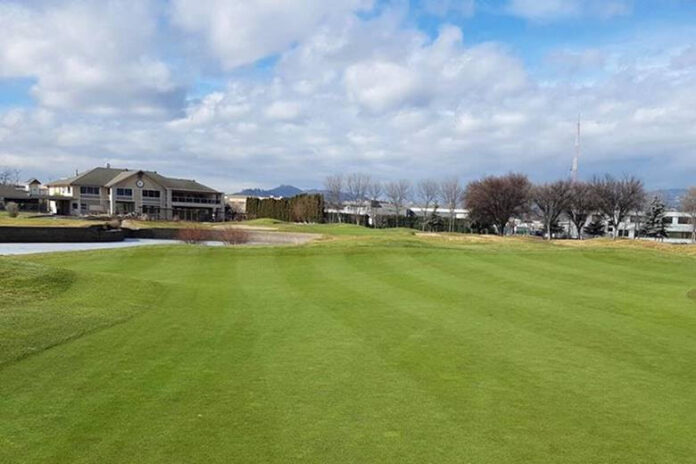
The new owners of the land that Kelowna Springs Golf Club occupies are asking city council for more time to decide on what their plans are for the future.
Denciti Development Corporation purchased the property in the northeast end of Kelowna earlier this year, a long-debated parcel in chambers.
Council voted in favour of changing the land designation from industrial to private recreational in late February.
“What we’re asking for right now is time,” said Volodya Gusak, president of Denciti. “We are trying to work with council to create a plan, and a process, that would benefit the entire community. And to do that, we need time, as the landowner.”
Gusak said that while the owners would like to hear from golfers, they would also like to hear from the rest of the population, that has not been heard yet.
“So we need the time to go to the community, gather that input, and have the conversations about what the potential for that property can be. I think the people of Kelowna deserve to know what’s at stake.”
As for now, Gusak said that they are open for a mixed use of the land – partly recreational along with industrial is not off the table, in their minds. He said that the pickleball club has been consulted, to possibly accommodate that group.
With some numbers already crunched, Gusak said that redevelopment could deliver 1,000-plus jobs to the community.
Some residents, however, have already voiced their concern on redevelopment. Randy Kozek and Lorel Pearce, who live in the area, brought up what they consider a number of issues if the property is developed, including flooding, saying that the course is an excellent “sponge” for melting snow and downpours.
“This is not a matter of if, it is a matter of when.”
They added that the Kelowna International Airport runs down the middle of the course, where the wetlands can absorb the excess jet fuel.
“Taking away this green space would be very destructive on so many levels. Case in point, our health and the food we grow.”
A 2022 staff report to council projected a significant need for industrial lands in the city over the next twenty years to keep pace with demand.











